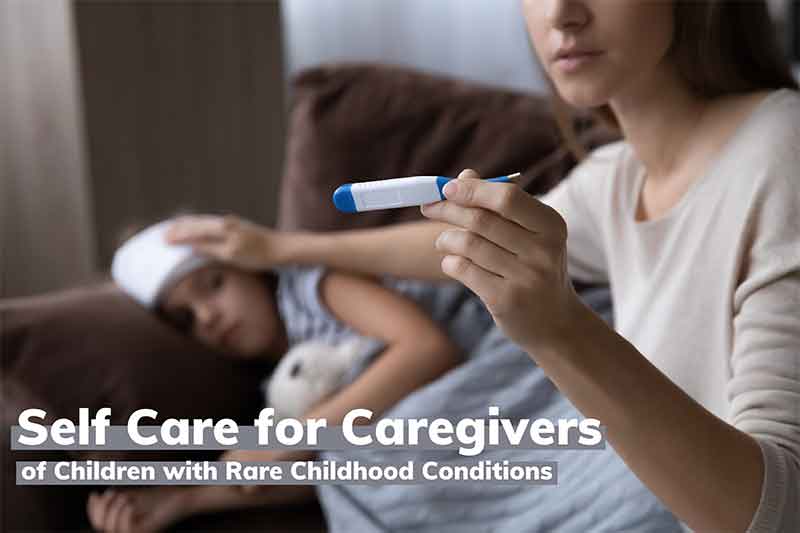
It can feel as if the weight of the world is on your shoulders. Your sick child needs you. Your partner needs you. Your coworkers need you. It’s no wonder you feel mentally, emotionally, and physically drained. That’s why it’s critical to take care of yourself. You may feel it’s a luxury to focus on your needs, but it’s not.

Caring for children is one of life’s most rewarding and challenging experiences. Of course, all parents and caregivers want the best for their children and will usually climb proverbial mountains to ensure that their children are safe and secure. However, for those dealing with a child who’s battling a rare childhood or undiagnosed condition, caring for them can be daunting.
Not only are you managing a sick child, but you’re also trying desperately to navigate a complex health system to try to find out what’s wrong with your child. Although you will rarely, if ever, admit it, sometimes you’re overwhelmed with the uncertainty and sheer magnitude of the situation and wish you could just hide.
It can feel as if the weight of the world is on your shoulders. Your sick child needs you. You may have other children who need you. Your partner needs you. Your coworkers need you. It’s no wonder you feel mentally, emotionally, and physically drained. That’s why it’s critical to take care of yourself. You may feel it’s a luxury to focus on your needs, but it’s not.
To give your child the best care possible, you need to recharge. There’s a reason flight attendants stress that adults traveling with young children need to place oxygen masks on themselves before tending to their children—if you can’t stay afloat, you can’t help someone who’s drowning.
It’s easy to neglect yourself when you are so busy caring for a sick child. But who will care for them if you are no longer healthy enough physically or emotionally? That’s why it is vital to learn how to take care of yourself.
Tips for Caregivers
These may seem easier said than done, and a few may even seem frivolous. But they’re essential to stay healthy.
Caregivers tend to be on autopilot, so they're not usually quick to recognize burnout in themselves. The symptoms can include changes in appetite and sleep patterns, withdrawal from social activities, increased anxiety, heightened emotions (excessive crying or irritability), or decreased (feeling empty or unconcerned). You should take all those symptoms seriously.
Multiple studies show that caregiving can compromise health. For example, about 60 percent of caregivers show signs of clinical depression, and caregivers take more prescription medications, including those for anxiety and depression, than others in their age group.
Finally, it’s okay that you’re not superhuman. You're a parent doing your best. So care for your child, but also don’t forget to care for yourself. Everyone will benefit.
Genome sequencing used at TGen’s Center for Rare Childhood Disorders (the Center) promises hope for parents whose children struggle with a rare disorder. While not all diagnoses lead to treatment immediately, attaching a name to their child’s disorder is a significant step to a better future.
The Center’s 40 percent diagnostic rate means that more families receive answers. Through the generosity of donors, the Center provides genomic testing for families at no charge and continues its work to provide solutions and cures to families and their children.